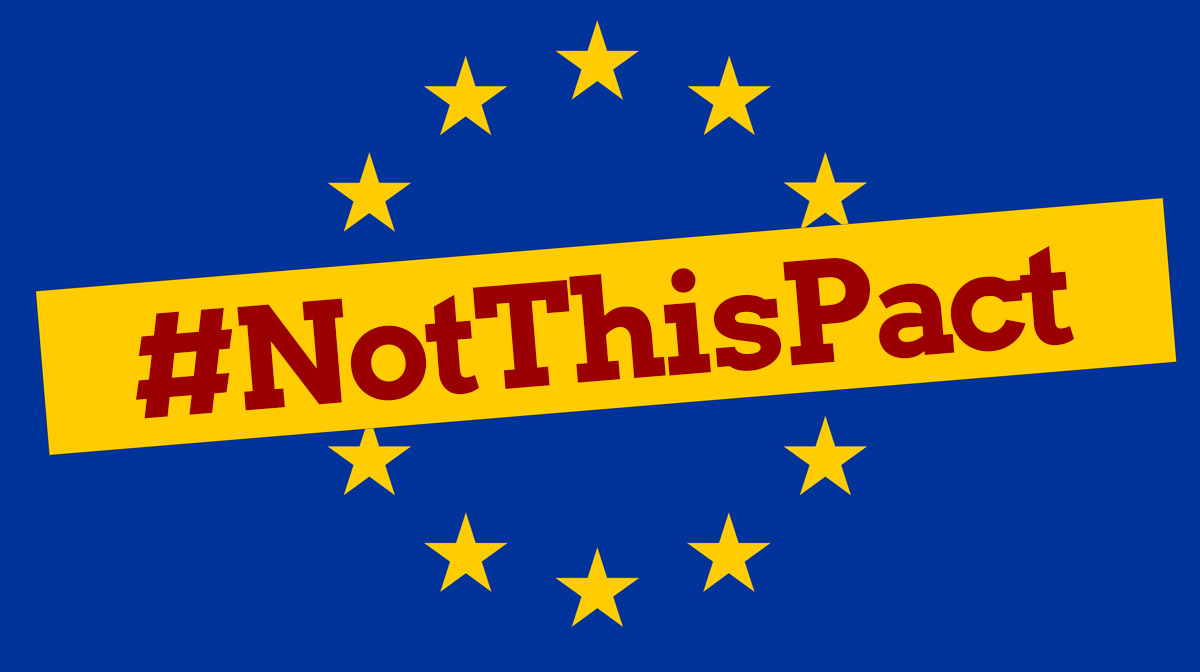New Pact on Migration and Asylum
On 10 April, the European Parliament voted on the New Pact on Migration and Asylum.
This pact contains eight texts, all aimed at tightening external border control and undermining freedom of movement and settlement.
Normalising the practice of refoulement
In practical terms, this legislation will allow people who do not apply for asylum to be returned directly to the border. Refugees will still be prevented from submitting their asylum applications in the country that they would like to go to, where it would be easier for them to rebuild their lives because they speak the language of that country or already know people there.
Widespread detention at borders
Those seeking asylum will be detained in “sorting centres” outside the territory or at the border while waiting for their applications to be examined. Sorting will be carried out mainly on the basis of the applicant’s nationalitý, without really taking into account the individual nature of his or her situation. People will be held in these detention centres, and deprived of their freedom, for up to 12 weeks.
No real solidarity and the externalisation of borders
European Union member countries will be able to choose not to receive a person seeking asylum by opting for an alternative: they can pay €20,000, provide human resources to “protect” the EU’s borders (such as sending national border officers to European sorting centres), or they can put in place national policies to externalise borders (e.g. create bilateral agreements to expel people to countries that are often perpetrators of human rights violations).
“Instrumentalisation”, yet another concept for circumventing the right to asylum
This pact introduces a new concept known as the “instrumentalisation” of migration. As such, if the EU considers that a non-EU member is trying to put pressure on it by sending a large number of migrants to its borders, it could decide to suspend the processing of asylum applications altogether.
Identification and forced fingerprinting from the age of six
The Eurodac system (a European database that registers the fingerprints of migrants and asylum seekers in order to identify them) will from now on contain records (fingerprints and facial images) of all foreigners, including minors from the age of six, even if done so under duress.
Slight progress on employment of asylum seekers
Lastly, a directive on reception conditions shows marginal progress by giving asylum seekers the opportunity to work after six months in the country, instead of the current nine months. There are also improved guarantees on reception conditions. However, the downside to this is the widespread use of house arrest.
TAKING ACTION TOGETHER
Emmaus Europe strongly opposes this text! We urge you to take action by posting a message on social media to voice your opposition to this pact, using the hashtag #NotThisPact. Do not forget to tag @emmauseurope so that we can share your messages.




